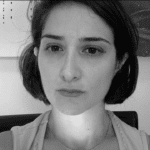INFOSHEET: Excedente e deslocamento, refugiados e migrantes
Neste ensaio, a pesquisadora Nadia Bou Ali explora o conceito de “humanidade excedente”, conforme articulado por vários teóricos, que delineia as massas marginalizadas que enfrentam desigualdade, desapropriação e deslocamento, desprovidas de direitos sociais e humanos. Bou Ali entrelaça essa noção com o discurso crítico sobre “populações excedentes” da economia política, elucidando como os sistemas econômicos tanto excluem quanto absorvem potencialmente aqueles que marginalizam. Ela argumenta que entender essa base econômica é vital para compreender os desafios únicos enfrentados pelos refugiados, principalmente em contextos como o pós-terremoto na Turquia/Síria, em que a insegurança social e o desemprego servem como portas de entrada para a integração econômica das populações deslocadas.

O ensaio revela a conexão entre a população excedente e a dinâmica econômica e a exploração do trabalho, que contribuem para o aumento das taxas de desemprego nas economias nacionais. Ele explora como essa força de trabalho excedente, muitas vezes excluída dos direitos formais e do emprego, paradoxalmente facilita a redução dos salários, perpetuando um ciclo de exclusão econômica.
Essa análise destaca que a exclusão social e econômica não são sinônimos e esclarece o papel da ajuda em contextos como o do Líbano, onde as ONGs desempenham um papel significativo no apoio às necessidades de subsistência dos refugiados.
Leia o artigo completo, publicado originalmente em Diálogo global.

